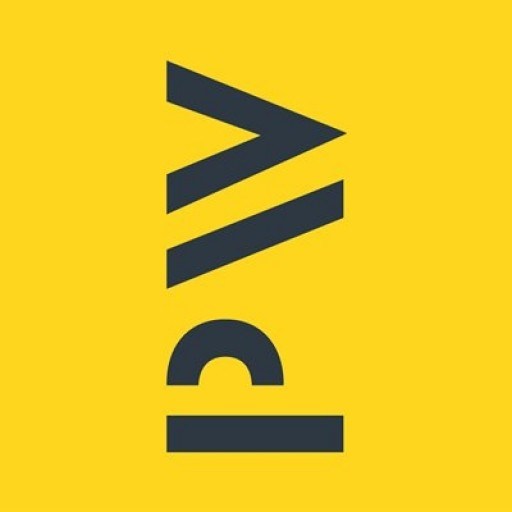Photos of university / #vubrussel
Electromechanical Engineering at the Free University of Brussels offers a comprehensive and interdisciplinary education that prepares students to excel in the dynamic fields of automation, robotics, renewable energy, and manufacturing technology. This program combines fundamental principles of electronics, mechanics, and computer science to develop skilled engineers capable of designing, analyzing, and maintaining complex electromechanical systems. Throughout the curriculum, students engage with theoretical knowledge and practical skills, including circuit design, control systems, mechanical design, instrumentation, and programming. The program emphasizes innovation, sustainability, and technological advancement, aligning with the evolving needs of industry and society. Students benefit from state-of-the-art laboratories, collaborative projects with industry partners, and opportunities for internships, fostering real-world experience. The program’s structure encourages critical thinking, problem-solving, and teamwork, preparing graduates to contribute effectively to sectors such as manufacturing, energy, automation, and research. With a balanced mixture of classroom instruction, laboratory work, and project-based learning, students graduate with a solid foundation in both hardware and software aspects of electromechanical systems. Upon completion, graduates are equipped to pursue careers in designing automation solutions, managing maintenance operations, developing new electromechanical technologies, or continuing their education through advanced studies. The program aims to cultivate innovative engineers who can adapt to rapid technological changes and meet the engineering challenges of the future.
The Electromechanical Engineering program at the Free University of Brussels offers a comprehensive curriculum designed to provide students with a solid foundation in both electrical and mechanical engineering principles. This multidisciplinary program aims to prepare graduates for the rapidly evolving industry sectors that require expertise in integrated systems, automation, robotics, and energy management. Throughout the course of study, students will explore key topics such as circuit analysis, control systems, thermodynamics, advanced manufacturing technologies, and digital systems. The program emphasizes hands-on laboratory work, project-based learning, and internships to ensure practical skills are developed alongside theoretical knowledge. Students will engage with state-of-the-art equipment and software tools to design, simulate, and analyze electromechanical systems. The curriculum also covers emerging topics like renewable energy technologies, mechatronics, and smart systems, aligning with current industry trends and demands. In addition to technical courses, the program fosters soft skills including project management, teamwork, and communication, preparing students for collaborative work environments. Throughout their studies, students have the opportunity to participate in research projects and industry collaborations, gaining valuable insights into the application of electromechanical engineering in real-world scenarios. Upon graduation, students will be equipped to pursue careers in various sectors such as manufacturing, energy, transportation, and automation industries, or to continue their studies in master's programs. By combining rigorous technical training with real-world applications, the Electromechanical Engineering program at the Free University of Brussels aims to develop innovative engineers capable of addressing the technological challenges of tomorrow.
The Electromechanical Engineering program at the Free University of Brussels requires prospective students to meet specific academic prerequisites and application procedures. Applicants should possess a high school diploma or an equivalent qualification demonstrating strong foundational knowledge in mathematics, physics, and technology. A competitive grade point average and proficiency in English are also essential, as the program is conducted primarily in English. The university values applicants with a demonstrated interest in engineering disciplines, including prior coursework or extracurricular activities related to electronics, mechanics, or thermodynamics.
To apply, candidates must submit an online application form through the university’s admissions portal, accompanied by certified copies of academic transcripts, a motivation letter outlining their interest and aspirations in electromechanical engineering, and a curriculum vitae outlining relevant experiences. Additionally, international students are required to provide proof of language proficiency through standardized tests such as TOEFL or IELTS, with minimum scores set according to university standards. The admissions committee considers academic achievements, motivation, and potential contribution to the university community during selection.
Once admitted, students are expected to participate in an orientation session that introduces them to the academic calendar, faculty resources, and student support services. The program curriculum includes foundational courses in electrical circuits, mechanical systems, control engineering, and computer-aided design, followed by specialized electives in automation, renewable energy systems, and robotics. Students may also undertake internships or project work as part of their degree requirements to gain practical industry experience.
The program duration is typically three years for a bachelor’s degree, with options for further specialization through master’s programs. Throughout their studies, students must complete a series of assessments, including written exams, practical laboratories, and project presentations. Successful graduates receive a Bachelor of Science in Electromechanical Engineering, qualifying them for careers in manufacturing, energy, robotics, and automation sectors, or for pursuing postgraduate studies.
The financing options for the Electromechanical Engineering program at the Free University of Brussels are designed to accommodate a diverse range of students, ensuring accessible higher education. Tuition fees are established annually by the university and vary depending on the student's nationality, academic level, and residence status. For European Union (EU) students, tuition fees are generally lower compared to non-EU students, with specific rates published on the university's official website. Additionally, students may be eligible for discounts or reduced fees through various scholarships, grants, and financial aid programs offered by the university or external organizations.
The university provides several scholarship opportunities aimed at supporting academically excellent students, students with financial hardships, or those who demonstrate exceptional potential in the field of electromechanical engineering. These scholarships often cover partial or full tuition fees and may also include allowances for living expenses. To qualify, students typically need to submit an application and meet specific academic and financial criteria, which are evaluated by the university’s scholarship committee.
Furthermore, many students fund their studies through government student loan programs available for residents of Belgium or the European Union. These loans usually have favorable repayment terms and may be supplemented by interest subsidies or other financial support measures. International students should explore bilateral agreements between their home country and Belgium, which may include scholarships or loan options to assist with studying abroad.
Apart from formal financial aid, students often find part-time employment opportunities within the university campus or in the surrounding area, which can help cover living costs. The university’s careers services advise students on finding suitable part-time jobs, internships, and work placements relevant to their field of study, providing both financial support and practical experience.
In summary, the financing of studies in the Electromechanical Engineering program at the Free University of Brussels includes a combination of tuition fees, scholarships, government loans, and employment opportunities. Prospective students are encouraged to consult the university's official financial aid resources and application procedures early, as funding options and eligibility criteria may change annually. The university remains committed to accessible education and strives to provide ample support to students pursuing their degree in electromechanical engineering.
Electromechanical Engineering at the Free University of Brussels is a comprehensive program designed to prepare students for the dynamic field of electromechanical systems, which encompass both electrical and mechanical components. The curriculum combines theoretical knowledge with practical skills, enabling graduates to design, analyze, and maintain sophisticated electromechanical devices and systems. The program covers fundamental subjects such as electrical circuits, physics, mathematics, and materials science, alongside specialized courses in automation, control systems, robotics, sensors, and actuators. Students gain hands-on experience through laboratory work, project-based assignments, and internships, facilitating the application of theoretical principles in real-world contexts.
The program emphasizes the integration of electronics and mechanical engineering, reflecting the interdisciplinary nature of modern engineering challenges. Students learn about the design and development of electromechanical systems including motors, generators, industrial automation equipment, and robotic systems. Advanced topics such as embedded systems, digital control, and power electronics are also included to ensure that graduates are well-versed in current technologies and industry standards. The curriculum is structured to foster critical thinking, problem-solving, and innovation, which are essential skills in the rapidly evolving engineering landscape.
Aside from technical coursework, students have opportunities to engage in research projects, innovation competitions, and collaborative work with industry partners. This provides exposure to current challenges faced by the sector and encourages a proactive approach to technological development. The program aims to prepare students for careers in various industries including manufacturing, automation, energy, aerospace, and automotive sectors. Graduates are equipped with the skills needed for positions such as systems engineer, maintenance engineer, design engineer, or project manager.
The university also offers supportive resources such as modern laboratories, technical workshops, and access to various digital tools to enhance learning. Moreover, the program promotes continuous learning and professional development, often encouraging students to pursue further specialization or postgraduate studies. Upon graduation, students are expected to be capable of tackling complex engineering problems, leading innovation projects, and contributing effectively to multidisciplinary teams. The program is designed to meet the needs of the modern technological workforce, ensuring that students are competitive in today's global job market.









